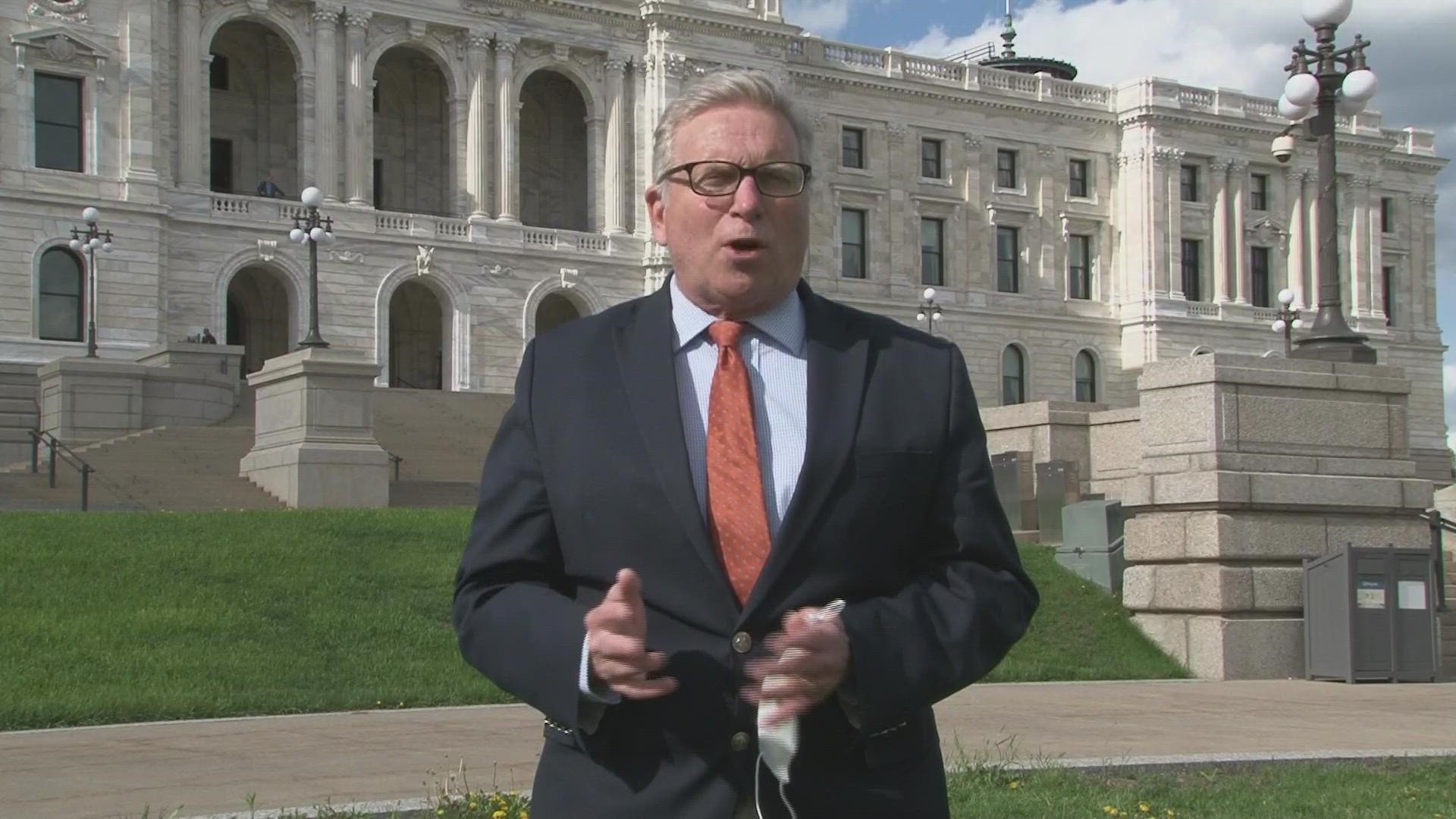ST PAUL, Minn — Minnesota lawmakers couldn't find common ground on several budget bills Friday as the end of their legislative season rapidly approached.
Democratic House Speaker Melissa Hortman, of Brooklyn Park, said tax committee chairs have made “fantastic progress” on a $4 billon tax relief bill, echoing Republican Senate Majority Leader Jeremy Miller's comments Thursday that a deal on the package was close.
But sticking points between Senate Republican and House Democratic committee chairs in most other areas — including health and human services, education and public safety — have forced leaders to get involved to try to hammer out agreements before an 11:59 p.m. deadline on Sunday.
“They have to get realistic,” Hortman told reporters. “Everybody has to kind of cut to the chase and understand that compromise means some ideas from both sides are in the final agreement.”
Growlers and spirits
But beer drinkers got some long awaited good news Friday. The House and Senate both passed the final version of the liquor bill, which will allow the state's largest craft brewers to fill half-gallon bottles known as growlers.
Until now those brewers who produce more than 20,000 gallons per year -- Surly, Summit, Lift Bridge, Fulton, Schell’s and Castle Danger -- were prohibited from selling beer to go in those reusable glass containers.
The bill also enables distillers to sell spirits in a variety of bottle sizes, and allows distilleries to have cocktail rooms.
The legislation also enables distillers to provide spirits in a variety of bottle sizes for the first time ever, and it allows distilleries to have cocktail rooms. The measure is now headed to Gov. Walz for a signature and will become effective immediately when he signs it.
The 4-4-4 Plan
Democratic Gov. Tim Walz and top legislators agreed on targets for how to divide up the state’s $9.25 billion budget surplus earlier this week, with $4 billion for tax relief, $4 billion in spending and another $4 billion to be left in reserve.
The spending portion includes $1 billion each for education, and health and human services, and $450 million for public safety.
An $18.4 million drought relief package came together Friday that includes $8.1 million in grants for livestock farmers and specialty crop producers, in addition to $5.3 million to the Department of Natural Resources for tree replacement on state-managed lands. Funding proposed by House Democrats for tree replacement grants for local and tribal governments, as well as for equipment for using water more efficiently and to help sustain trees that are already planted, was left out of the final bill.
Hortman said the rural broadband conference committee made significant progress on its $50 million package, while lawmakers also wrapped up a $15 million in supplemental spending for agriculture.
Even though the tax bill was the closest of the big bills to being finished, Hortman said the legislation — which needs to pass the House before it goes to the Senate — will be used as leverage to ensure all of the other bills get done first before it is brought to the floor.
Democratic Senate Minority Leader Melisa López Franzen, of Edina, said she hopes the impasses can be resolved, and that she expects lawmakers to remain at the Capitol until the deadline to get their work done.
“We are going to be here all weekend," she said. "Things are still fluid but we’re expecting to be on the floor today, tomorrow and Sunday until 11:59, until we can pass all the bills.”
Price Gouging
Senate Democrats Friday attempted to force a vote on a bill that makes price gouging illegal in Minnesota. The measure has been stuck in committee, so Sen. Lindsey Port of Burnsville moved to force the bill out of committee and straight to the floor, citing the current critical shortage of infant formula.
Sen. Port was successful in her first parliamentary maneuver, attracting enough votes to bring the bill to the floor. It required 41 votes, and garnered 55. But a second effort, a motion to suspend the rules so it could be placed on Friday's calendar, failed because Republicans voted against it.
Watch more Minnesota politics:
Watch the latest political coverage from the Land of 10,000 Lakes in our YouTube playlist:

